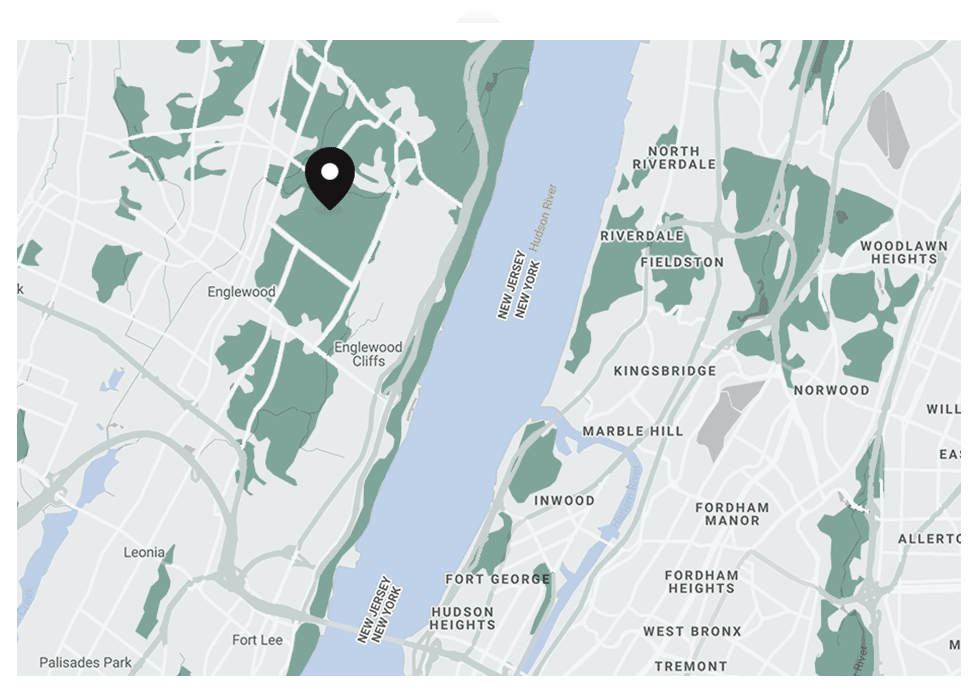Meet Emma, from our Early Learning program
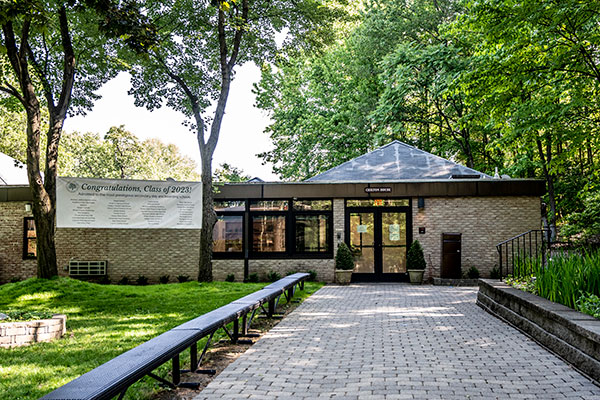
Each day, Emma is greeted in the carline by one of her teachers. As she approaches the doors to Chilton House, members of the EMS community, from teachers to staff, greet her by name, making sure she feels seen and heard.
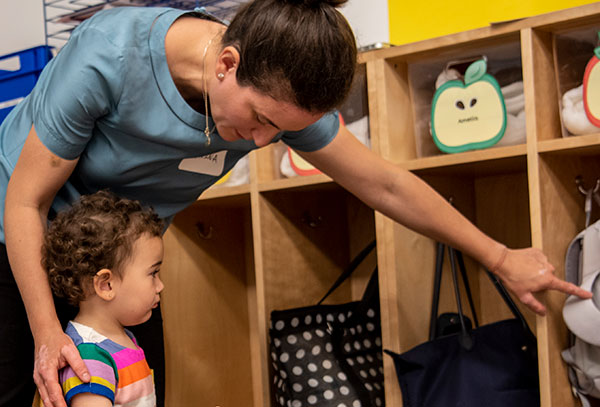
When Emma gets to her classroom, she puts her things away in her cubby. Students gather for the morning meeting, which sets the tone for the day, and then dive into activities. Some of these are independent and some are interdependent, and they include art, block-building, sensory play, dramatic play, and library time.
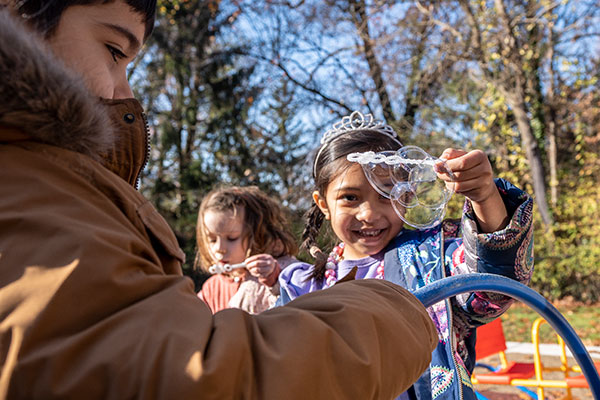
Snacks and lunch are brought to the classroom, and Emma and her classmates enjoy lunch outside when the weather permits. Emma and her friends enjoy the time to socialize with each other and their teachers.
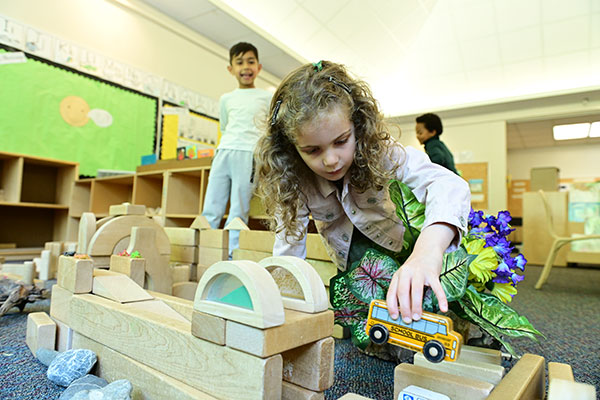
At age 3, Emma is already learning about shapes and math. Our youngest students are introduced to learning experiences in math, language, literacy, and social studies at developmentally-appropriate times.
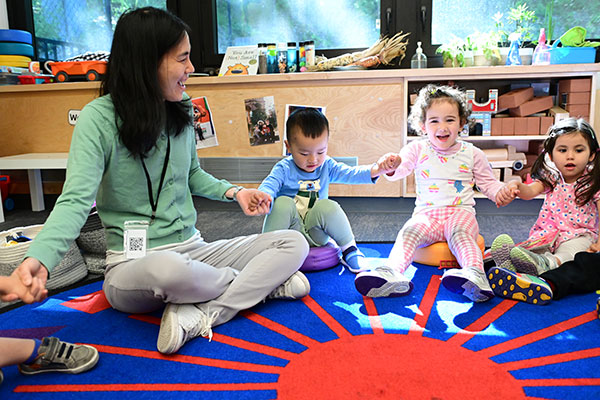
Emma has been learning about the 4 C’s — Courtesy, Consideration, Cooperation, and Compassion — which are practiced school-wide and encourage students to think about how their actions affect each other.
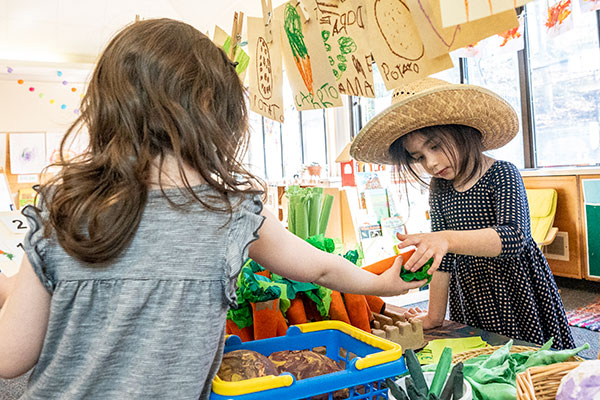
Emma and her classmates spend time learning about how food is grown before practicing reciting the days of the week in Spanish. In Exploration Alley, a space designed specifically to encourage STEAM skills, Emma’s group is building a bird feeder.
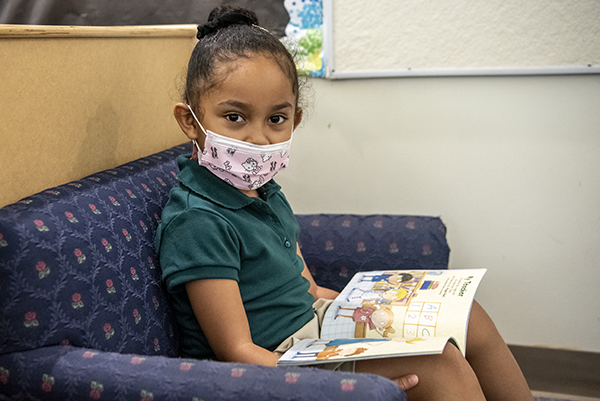
Emma decides the books she’ll read, which helps encourage a love of reading.

Chilton House ends the day with a closing meeting before Emma’s mom arrives to pick her up.
Meet John, one of our third-graders
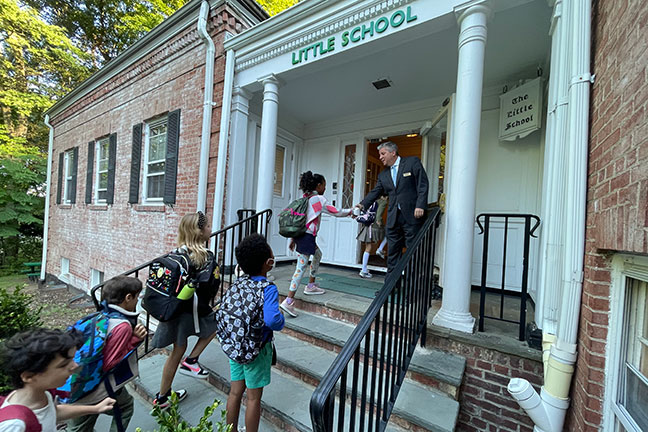
Each morning, John walks to his classroom from the carline or bus drop-off. He may see Head of School Marek Beck shaking hands with students and welcoming them to campus.
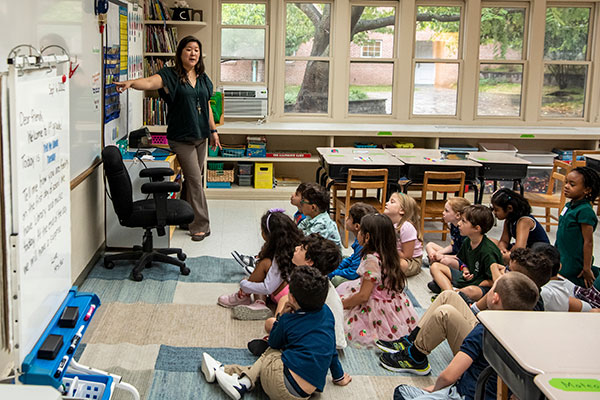
John starts his school day with the morning meeting, where he and his classmates discuss shared expectations for behavior and what the day’s schedule will be.
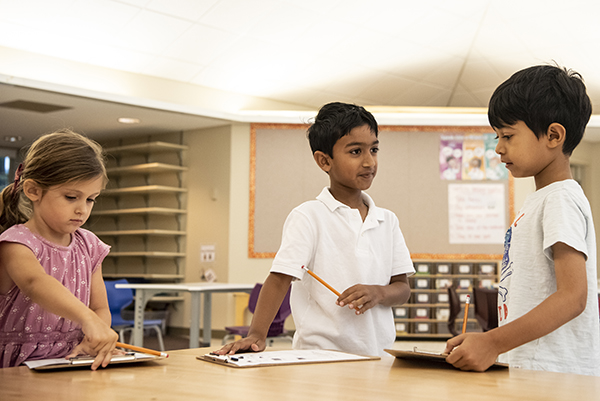
The morning goes by quickly, and John has a few classes in math, language skills, and, his favorite, STEAM (science, technology, engineering, the arts, and mathematics). In between classes, he catches up with his classmates.
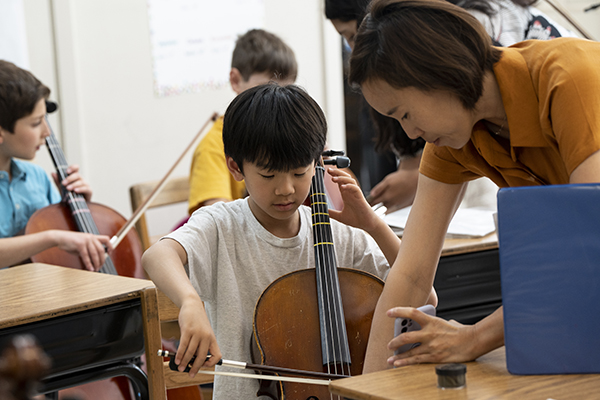
After lunch, it’s time for ensemble. John plays the cello, which he takes home every day to practice. John has ensemble three times each week.
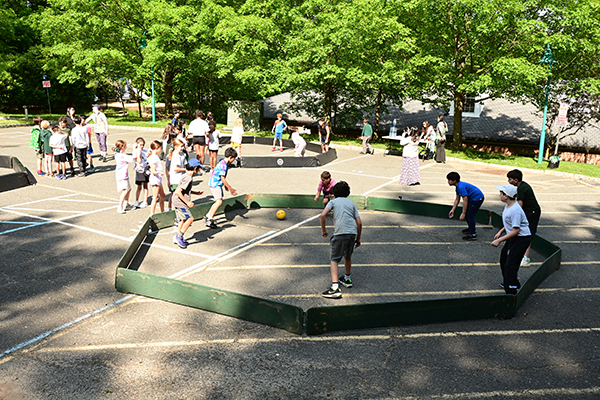
It’s time for physical education, and the students are enjoying a fast-paced game of gaga, an EMS tradition that’s similar to dodgeball but played in a more confined space.
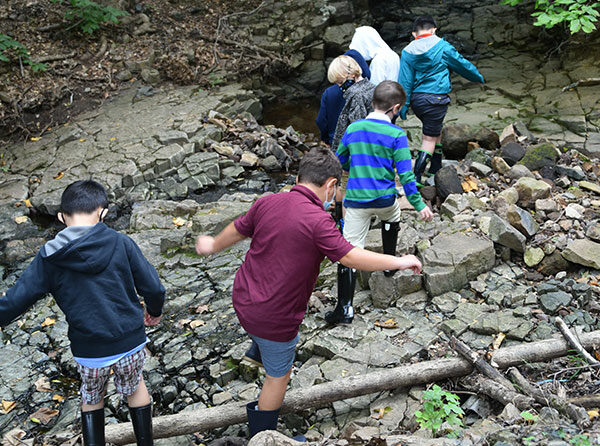
In the afternoon, John’s class is down at the brook studying amphibians.
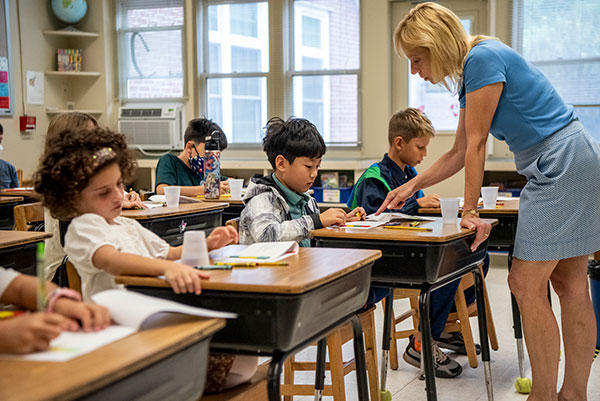
At the end of the day, John reviews his homework with his teacher and packs up everything he’ll need before heading out to the carline or bus.
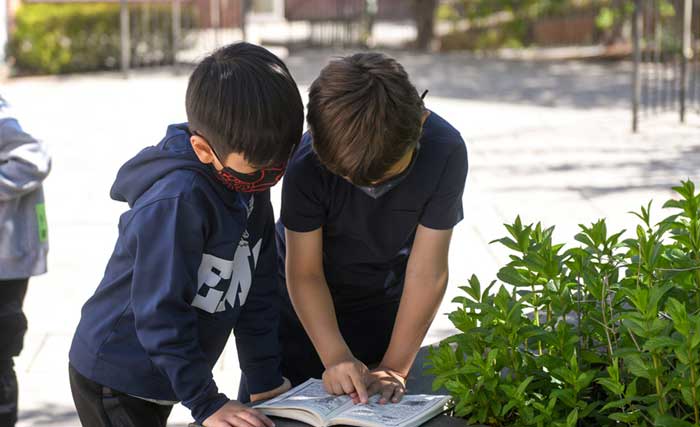
One day a week, John stays late for an After School Adventures class. This class is called “Inventive Art,” and he is looking for natural, found items to create his masterpiece! Next season, John will take a stop-animation class after school.
Meet Elise, one of our eighth-graders
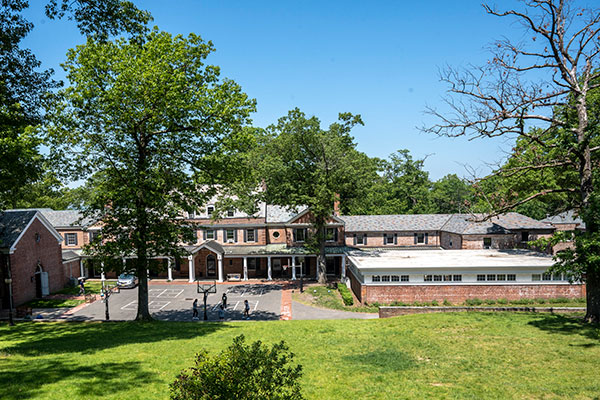
Elise rides the bus from the city and arrives at school with just enough time to greet her friends before going to the main entrance in the courtyard for class. There, her teacher greets her at the door.
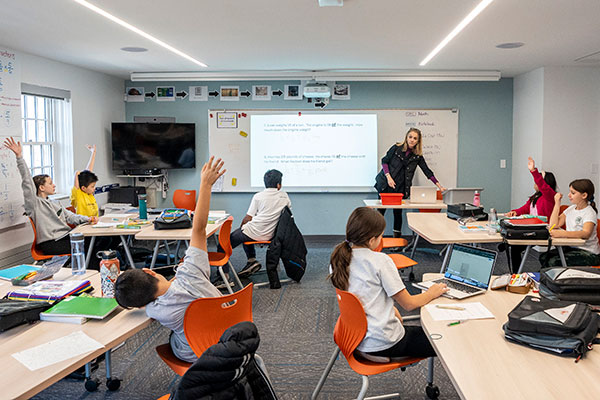
Elise’s day starts with English, history, and math. In between classes, she and her classmates have a break to catch up, take a breath, and reset.
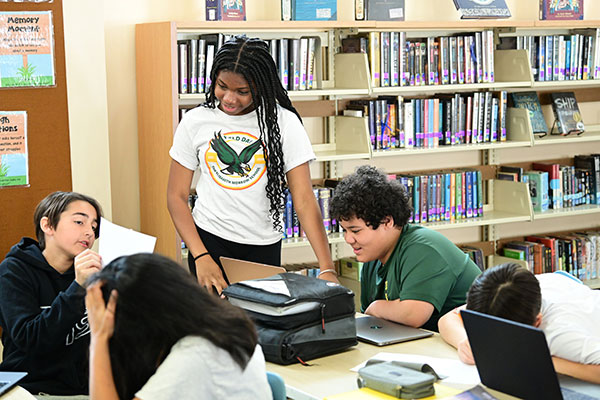
Today, Elise is researching a paper for humanities, so she heads to the library. Elise uses the skills she learned in Library Science to find the books she needs.
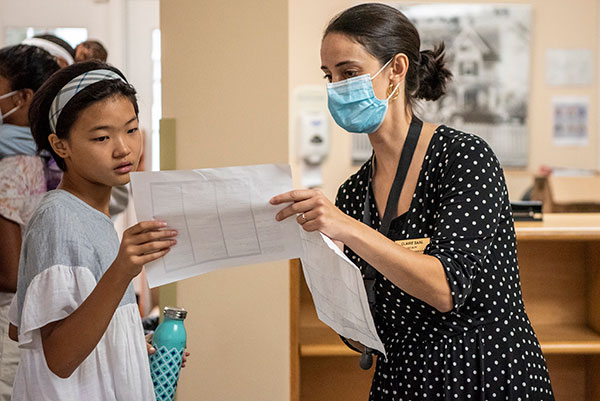
At lunch, Elise meets with her advisor. This happens every day as a way to check in with Morrow House students and ensure they’re being seen and heard. Since Elise is in eighth grade, they’re also discussing how to best prepare for secondary school applications.
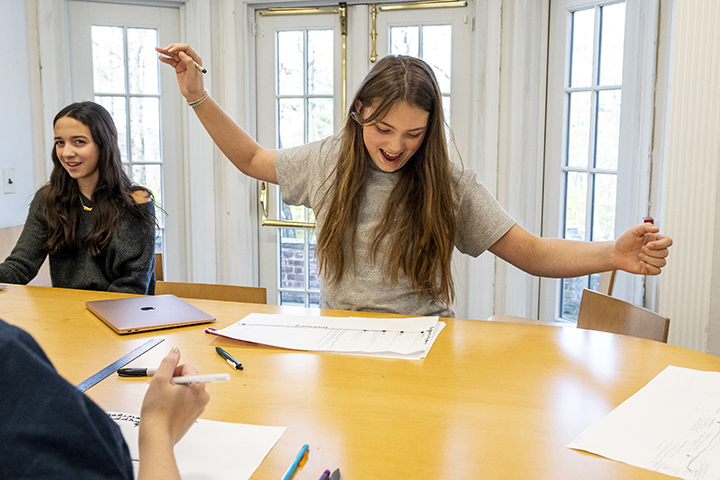
After lunch, Elise heads to Latin class. She could have also chosen Spanish, as some of her classmates have.
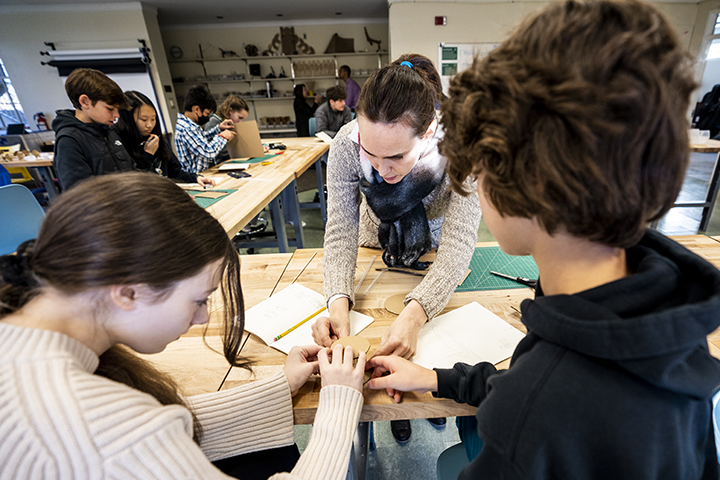
During design studio, students work on their prototypes in pairs. They’ve been challenged with developing solutions to mitigate the potential for campus flooding during extreme weather situations. This project asks them to draw on knowledge from across many areas of study.
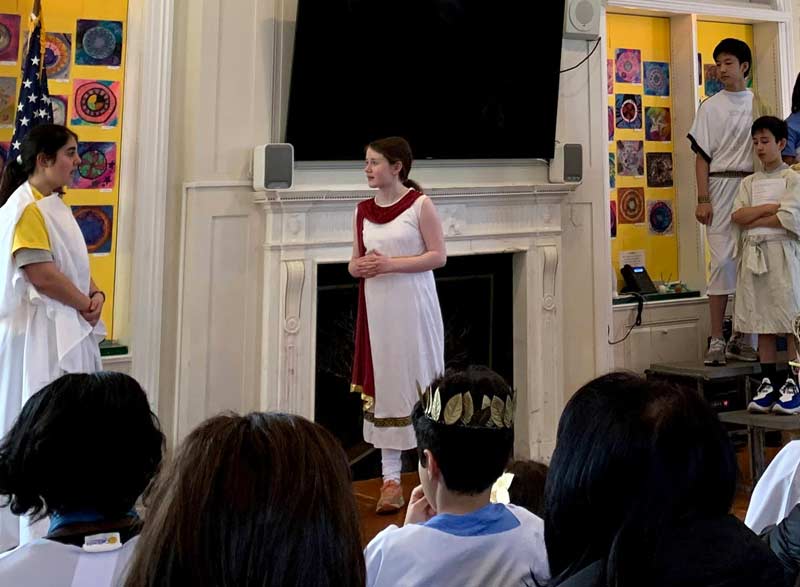
This semester, Elise is studying ancient history, and she and her classmates are engaging with the content in a variety of ways, from creating new versions of Greek myths in her technology class to performing Greek dramas.
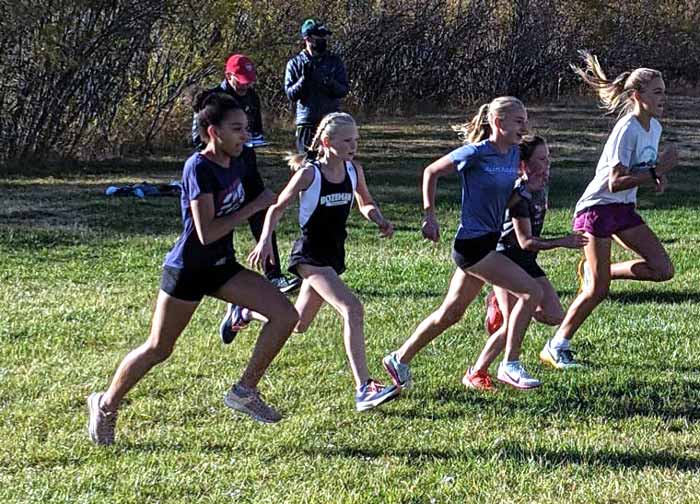
Just before the end of the day, Elise heads to cross-country running, where she’s working on her stride. She has noticed that the P.E.—”FITT” class she took last semester seems to help her endurance.
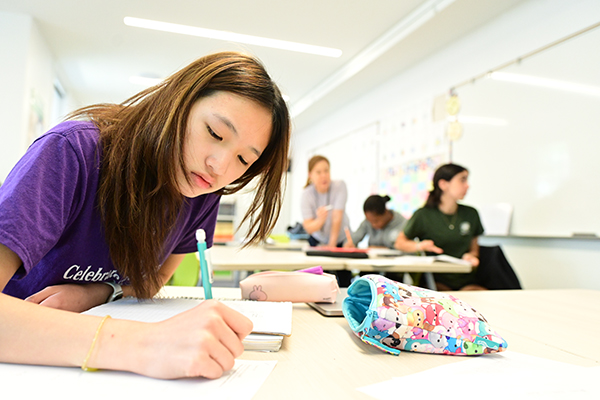
A few times a week, Elise stays late and does homework in the library, where she can get help if she needs it. On those days, she takes the late bus.
